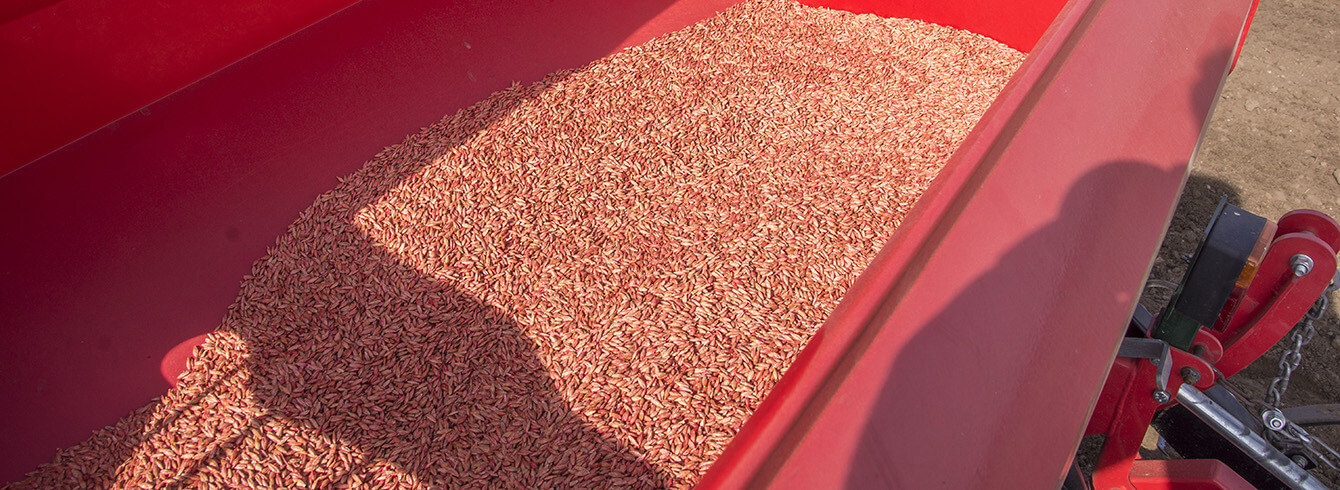This is the information we got “from the field”. Every farmer has probably already heard that VAT on fertilisers is being abolished for six months. Over time, it also turned out that the zero VAT rate would apply to crop protection agents and cereals, among other things. Now we have found out it will also apply to seed grain. However, even though the zero VAT rate comes into force tomorrow, i.e. 1 February, very little about the new regulations is known to the industry itself.
We asked the Ministry of Agriculture and Rural Development for confirmation.
“I would like to inform you that if a product is currently classified as CN10 according to Schedule 10 to the VAT Act and if the current VAT rate on such product is 5%, then from 1 February 2022 until the end of July 2022 it will be sold at a 0% VAT rate. Meanwhile, as regards products classified as CN ex12, only goods intended for human consumption can be sold at a 0% VAT rate,” we were told by Małgorzata Książyk, Head of Information and Communication Department at the Ministry of Agriculture.
We also previously asked whether the 0% VAT rate would apply to foliar fertilisers. “If such fertilisers have been classified to the 8% VAT category, they will be subject to the 0% VAT rate,” Książyk told us. After the information concerning 0% VAT on cereals emerged, we also wanted to make sure that it also applied to rapeseed (such opinions were circulating among farmers). “Rapeseed remains unchanged at 8 percent,” farmer.pl was informed by Dariusz Mamiński, attorney from the Press Department of the Ministry of Agriculture.
Seed grain also at 0 VAT?
Going back to seed grain, however, not much is known about this issue. Even the Polish Seed Trade Association is not aware of any details, let alone farmers and companies selling seed grain that are supposed to implement the new rules.
The regulations are scheduled to come into force as from 1 February 2022; on 27 January 2022, the Polish Seed Trade Association sent a request for clarification and specific guidance on this issue to the Ministry of Finance. We publish the content of its letter signed by the President of the Association Leszek Chmielnicki below.
“On behalf of the members of the Polish Seed Trade Association, further to the legislative process pending at the Parliament of the Republic of Poland concerning the bill amending the Tax on Goods and Services Act, I kindly request information / confirmation regarding the following matter:
The proposed bill introduces changes to VAT rates from 5% to 0% for, among others, foodstuffs listed under items 1-18 of Schedule 10 to the Act, which applies i.a. to seeds.
For example:
Item 5 (CN 07): Edible vegetables and certain roots and tubers including seed potatoes
Item 7 (CN 10): Cereals
Item 9 (CN ex12): Oleaginous seeds and fruit; miscellaneous grains, seeds, and fruit; industrial or medicinal plants; straw and fodder – excluding goods for human consumption.
As can be seen above, the Combined Nomenclature (CN) does not distinguish between food and non-food seeds (i.e. also seed grain) in all headings. This distinction, however, is the basis for determining the VAT rate for seed grain of certain plant species, even though they have been defined as “foodstuffs”.
Therefore, will the seed grain of certain plants (e.g. seed potatoes, sweet corn, beans, and sugarsnap peas, marked with codes beginning with CN 07; wheat, triticale, barley, corn, and sorghum, marked with codes beginning with CN 10) also be subject to the revised VAT rate?
Our interpretation of the proposed amendments to the regulations suggests that although the bill stipulates foodstuffs, it also refers to the list of foodstuffs (items 1-18 of Schedule 10 to the Tax on Goods and Services Act), which also includes plant seed grain. On the basis of this list, VAT at the 5% rate is established with respect to, among other things, cereal seed grain (barley, wheat, corn, triticale, sorghum), seed potatoes, and vegetable seed grain (e.g. green beans, sugarsnap peas, and sweet corn).
This interpretation is determined by the fact that the changes of VAT rates that are being introduced directly refer to goods marked with specific CN codes.
We would appreciate your reply to this letter as soon as possible, given that that the bill provides for the aforementioned provisions to enter into force on February 1 2022 and, if the proposed change also covers the seed grain of certain plants, the entire seed industry will have to introduce relevant changes in a very short time.”
We will be following this issue.


